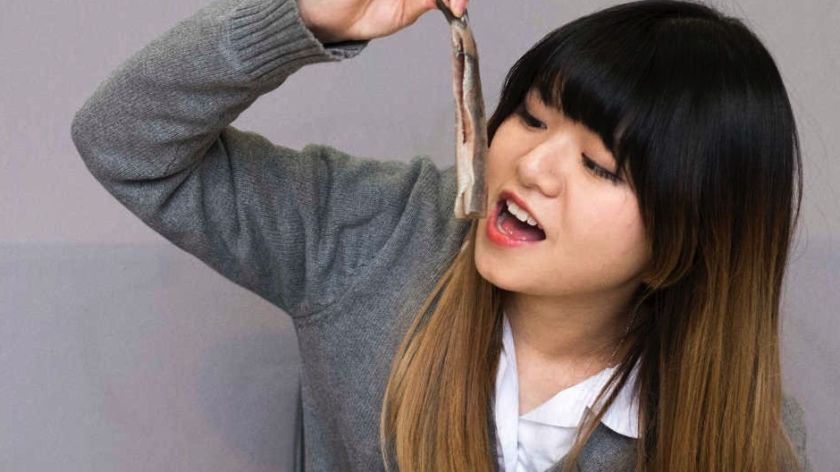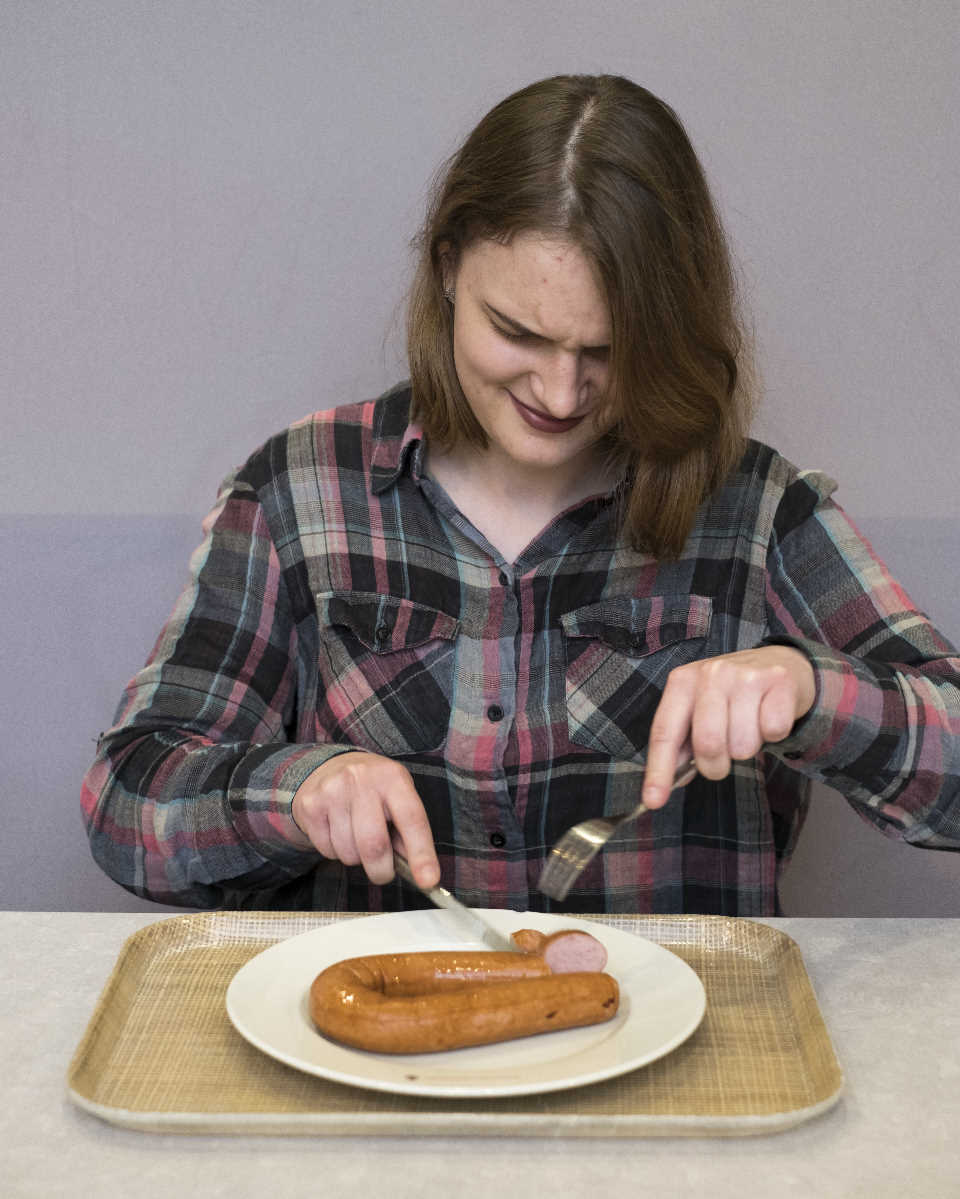Hello Nederlanders, can we mingle?
-
 Photo: Erik van 't Hullenaar
Photo: Erik van 't Hullenaar
Foreign students would like to mingle with the Dutch more. That’s not always so easy to do. Parties and gatherings often happen during weekdays, when they’re busy studying for their dearly paid tuition fees. What to do?
Apart from some pronunciation mistakes, the German Vivien Kühnen speaks impeccable Dutch. The first-year psychology student has had three years of Dutch lessons in high school and has been exposed to the language a lot because she lives close to the border. Furthermore, she takes on every opportunity to work on her Dutch. Still, she doesn’t feel as free when talking in Dutch groups: ‘I feel less connected when I speak Dutch. In a group, it costs me more energy to keep up. Everyone uses their own unique words and in a group you can’t ask what every word means.’ It’s one of the reasons why she tends to gravitate towards German students. ‘I find it easier to click with Germans, because you have more in common and share the same sense of humour.’
Stephanie Buah is from Ghana and studies International business administration. She says she still struggles to connect with the Dutch students. ‘In groups, for example my workgroup, I’ll often ask the students to talk in English. However, they always switch back midway, after which I feel left out. I’ll just stand there awkwardly for a while and then walk away.’
What happens on campus?
International students who arrive at Radboud University, will meet other international students during their orientation week and in their classes. Boudewijn Grievink from the International Office says that Radboud International Students (RIS) does try to mix different nationalities and genders, to make the groups as diverse as possible. The group leaders during the introduction are Dutch as well as international. To stimulate interaction with Dutch students and to make students feel more at home, the International Office encourages them to choose a sport at the Sports Centre and take a course in social Dutch at Radboud In’to Languages. Students get 50 percent discount on that course. Next to that, the office organises meetings about Dutch habits (‘Dealing with the Dutch) and culture shock throughout the year.
Grievink says student associations are trying hard to make their associations more accessible for internationals. ‘With varying success, until now, but they are trying. We also seek attention for this at other student associations, to remind them of the influx of international students and advise them to think about what that means for their association.” Another thing that the International Office tries to achieve is mixed living facilities. “This is not easy, because Dutch students often want unfurnished rooms and international students want furnished rooms,” says Grievink. “Students who go on exchange for a while, can sublet their room through the international office, so that international students can live in Dutch student housing for a while.’
Other initiatives to integrate students are Meet and eat at the university chaplaincy, where you can go to eat and meet people from all over the world on Wednesdays.
With six new English bachelors the amount of foreign students on campus have grown considerably. And this will only continue if the plans of more English bachelors go through. Students from abroad want to mix with the Dutch. But how can they do this?
The introduction week appears to be a good start. The internationals who joined have made lasting connections with their ‘brothers’ and ‘sisters’, and even those who didn’t join say to know Dutch students because of their international friends who did. However, it seems to stagnate from there. They don’t form a lot of new Dutch contacts after that.
Back home
In the canteen of the Huygens five freshmen natural science students are seated. Four study Molecular life sciences, one studies Chemistry. They too would like to get to know more Dutch people. They’re eager to learn the language: all enthusiastically tell they’re going to follow the Social Dutch course next quarter. They know study association activities can aid to get to know new people, but the students say they find it difficult to combine it with studying. Their busy college schedule is the culprit. ‘We do want to go’, says Davin Elian, student Molecular life sciences from Indonesia, ‘but almost all activities are planned on weekdays. And in the evenings we don’t have time, because we have to get up early for lectures the next day.’
Three of the five students come from outside the European Union, which means they pay royal tuition fees to study here. Elian: ‘I come here to study, my parents pay a lot of money to enable this. It’s a waste of money to fall behind in my studies and I don’t want to disappoint my parents.’ Fellow student Elen Asatryan, moved from Armenia, agrees: ‘It’d be shameful to go back to your country because you couldn’t complete your study.’
For English master students the situation seems even more difficult. Stefanos Loizou, Italian master student Clinical Biology, doesn’t get in contact a lot with other students. ‘I’m so busy with my studies, I’ve barely had time to socialize. The educational system is different here too, it takes time to get used to it. Furthermore, most other students have already formed group of friends because they’ve done their bachelor’s here.’
Student association
Four girls from Artificial intelligence form an exception to the aforementioned problems. All four of them are active within their study association, cognAC. Despite that they have classes from 8:45am till 5:30pm and need to work on assignments next to that. ‘After the intro week all of us joined cognAC and at least one committee’, says Ellen Schrader, German freshman Artificial Intelligence. By doing so they got to know lots of Dutch students. ‘From all grades!’
What’s CognAC’s secret? The study association focused on international integration from the first second. And the Dutch students make a big effort to speak English in and outside of classes. Because of this the foreign students feel welcomed. The students say mingling happens quite effortlessly.
One of them, Francesca Drummer, does mention that she misses an overview of all international activities on the internet. She isn’t aware that there is an agenda online, made by Radboud International Students. This organisation’s goal is to help international students get the most out of their time in Nijmegen.
 Besides these social activities, there are more chances to get to know Dutch people. In the canteen of the Huygens building Elada Panavaitė from Lihuania gestures around: ‘we get to know a lot of Dutch people because of workgroups and labwork here.’ The problem doesn’t lie in the attitude of the Dutch, the internationals declare. ‘The Dutch are really hospitable and willing to answer any questions I have’, says Asatryan. The other students nod confirmingly. Elian: ‘I feel others always accept me for who I am.’
Besides these social activities, there are more chances to get to know Dutch people. In the canteen of the Huygens building Elada Panavaitė from Lihuania gestures around: ‘we get to know a lot of Dutch people because of workgroups and labwork here.’ The problem doesn’t lie in the attitude of the Dutch, the internationals declare. ‘The Dutch are really hospitable and willing to answer any questions I have’, says Asatryan. The other students nod confirmingly. Elian: ‘I feel others always accept me for who I am.’
Master student Loizou, having done his bachelor’s in England, thinks Dutch people are more helpful than the British. ‘I find it a lot easier to ask someone something on the street here.’
What also helps integration, is sharing a home with Dutch students. Elian: ‘There are four Dutch students in my hallway at Hoogenveld, who’ve taught me Dutch and invite me to events too.’



